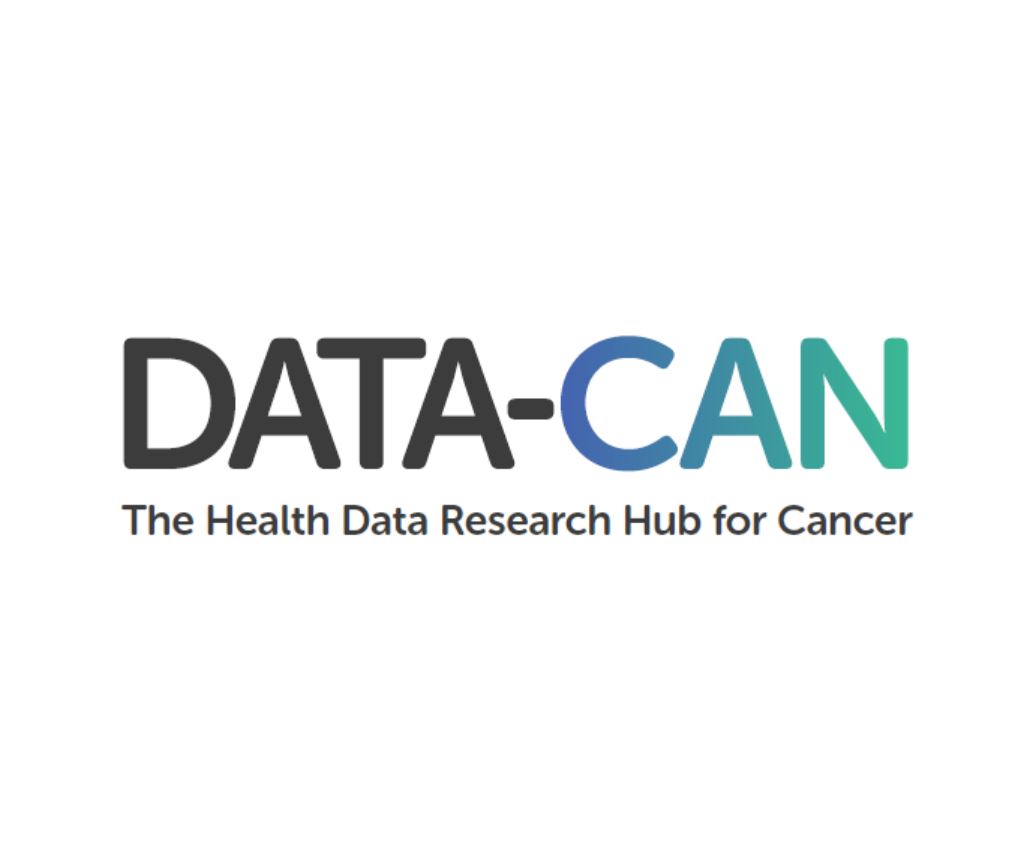DATA-CAN’s work on cancer and COVID has received national and international attention and been influential for a wide range of stakeholders. Building on work previously reported in Milestone 2, DATA-CAN’s initial data, together with a second study undertaken to delineate the impact of COVID on cancer services and cancer patients in Europe, have underpinned a pan-European Time To Act Campaign, under the leadership of DATA-CAN’s Scientific Director Prof Mark Lawler. This campaign, translated into 30 languages, has now been launched in 12 European countries by national ministers of health, emphasising its impact. Locally, we have worked with new associate partners Swansea University, to delineate the impact of COVID-19 on the cancer pathway in Wales (Br J Cancer resubmitted) and worked with the cancer registries in the devolved nations to capture the impact of COVID-19 on cancer diagnosis.
National Trusted Research Environment (TRE)
DATA-CAN is working with NHS Digital (NHSD) to provide access to cancer data in an NHS Trusted Research Environment (TRE). TREs are the most secure systems and technology for both governing and controlling access to data. The NHSD TRE will provide approved researchers from trusted organisations with timely and secure access to de-identified cancer data, initially from a COVID-19 perspective. Two of our founding partners, the University of Leeds and Leeds Teaching Hospitals NHS Trust, are leading this work which aims to improve our understanding of the current and future impact of COVID-19 on the referral, diagnosis, treatment and outcomes of patients with cancer, and those who may become unwell in the future. The ambition is to look at how this information can help develop new services, tests and treatments and ultimately save lives. The TRE is being developed in two phases:
Phase 1 – Cancer data from the nationally-collected NHS Hospital Episode Statistics (HES) and COVID-19 testing has been made available to approved researchers.
Phase 2 – In addition to HES data, national cancer datasets (Cancer Outcome and Services Data set, Chemotherapy, and Radiotherapy datasets) will be available to approved researchers (awaiting data flow).
DATA-CAN will delineate the precise impact of the pandemic on cancer systems and cancer patients. This requires access to both retrospective data (pre-2020) and near real-time data on patients referred with a suspicion of cancer and those diagnosed with and/or managed for cancer. Emphasis will be on data for cancer referral, diagnosis, treatment and outcomes, examining the impact of age, ethnicity, deprivation, co-morbidity and concurrent medication.
These plans and Phase 2 of the project described above were scheduled to start in the autumn of 2021 but are waiting for NHS Digital to load the national cancer data into the TRE. This is now due in March 2022.
DATA-CAN has been working closely with NHSD to overcome organisational and governance challenges, as there is a clear shared ambition and mutual benefit in collaborating to improve access to cancer data in England and eventually creating a resource which can support UK-wide analyses.
Prof Mark Lawler, DATA-CAN’s Scientific Director, has been working with Prof Cathie Sudlow, Director of the British Heart Foundation (BHF) Data Science Centre, on an HDR UK second quinquennium (QQ2) application to fund a driver project on Big Data for Complex Diseases. The project will explore the interrelationship between cancer and cardiovascular disease, underpinned by the common foundation of the NHSD TRE.
DATA-CAN is partnering with the BHF Data Science Centre and NHSD to work towards a single national TRE for England, avoiding a future of siloed disease-specific TREs. This approach will create an economy of scale, making data access processes simpler, more consistent and streamlined. DATA-CAN will apply for further funding from the HDR UK’s Directors Fund to support this collaboration and do preparatory work in anticipation of a successful QQ2 application.
Curated Electronic Health Records (cEHR)
The principal area where DATA-CAN is realising commercial revenue is through cEHR projects. Demand for real-world evidence (RWE) derived from the analysis of real-world data (RWD) continues to grow among healthcare and life sciences companies, both in the UK and globally. cEHR is a particular area of interest for teams working to improve the quality of hospital clinical datasets. Analysis of this type generates RWE on more patients, is more economical than clinical trials, and avoids quality and data depth issues within central data returns. cEHR enables a much deeper understanding of patient characteristics, treatment patterns and outcomes. It can also be deployed to inform internal decision-making and enhance Health Technology Assessment (HTA) submissions.
DATA-CAN has interest from global pharma companies for this service, leading to one completed project and two additional projects in the contracting stage. DATA-CAN currently has three sites (Leeds Teaching Hospitals NHS Trust, NHS Lothian, and University Hospitals Birmingham NHS Foundation Trust) signed up to work on the first of these projects and continues to grow the cEHR network. Sites not only benefit from commercial income, but also generate their own highly curated and standardised data which can then be reused.
Other companies supply cEHRs, including Flatiron, IQVIA and Tempus Oncology. There are organisations that also supply aggregated (but un-curated) EHR data, including Sensyne and the National Cancer Registration and Analysis Service/NHSD. DATA-CAN’s cEHR offer has the following unique elements:
- An Information Governance (IG) framework that permits the use of patient-level data within the EHRs of multiple large NHS cancer centres, and the ability to curate and analyse bespoke data sets to address questions of interest to commercial researchers.
- Direct input from practising oncologists and key opinion leaders at all stages of project development and delivery, including a clinical interpretation of the key project outcomes and findings.
- A rigorous approach to patient oversight, with commercially-funded projects subject to approval by members of a dedicated patient group prior to work commencing.
- A single pricing structure and agreed contractual terms that apply across all participating centres.
Impact
DATA-CAN’s work on COVID-19 and cancer has been extremely impactful at both national and international levels; it received the 2021 Royal College of Physicians Excellence in Patient Care Award and the Premio Extraordinario a la Mejor Iniciativa Científica Europea en Oncología Award (Spain).
DATA-CAN has been extremely ambitious in developing sustainable data services/activities to deliver maximum benefit to the UK population and beyond. Establishing these services and associated partnerships have been resource-intensive, coming to fruition through the hard work of the DATA-CAN team. Furthermore, delays in receiving cancer data and completing the evaluation project in the TRE has meant that DATA-CAN has not yet had the opportunity to fully realise the outputs from these two data services. However, their potential impact is immense.
Linkage of population routine datasets (demography including mortality, primary care, hospital) and audit datasets will enable comprehensive assessment of the impact of COVID-19 disease on cancer occurrence, reoccurrence and outcomes in the short, medium and long term. With COVID-19 potentially circulating for at least several years in the population, it is important to estimate the short, medium, and long-term effects of infection on incidence of cancer.
Further linkages of cancer and cardiovascular data will enable ground-breaking research in co-morbidities that affect large numbers of the population. cEHR projects meet commercial demand whilst keeping data behind trust firewalls. Data standardisation means that large datasets can be combined even if data is collected differently in different systems.
DATA-CAN’s aspiration for both the TRE and cEHR is to move towards federated analytics, where the analysis as well as the data stays within secure environments, simultaneously maximising insights and data security. These two services will address the demand for data-driven research because they have been developed with an understanding of the major barriers to data access in the UK and creative solutions to overcome those barriers. They also contain components of relationship building and collaboration across academic, health and commercial sectors in order to improve outcomes for cancer patients across the UK.


